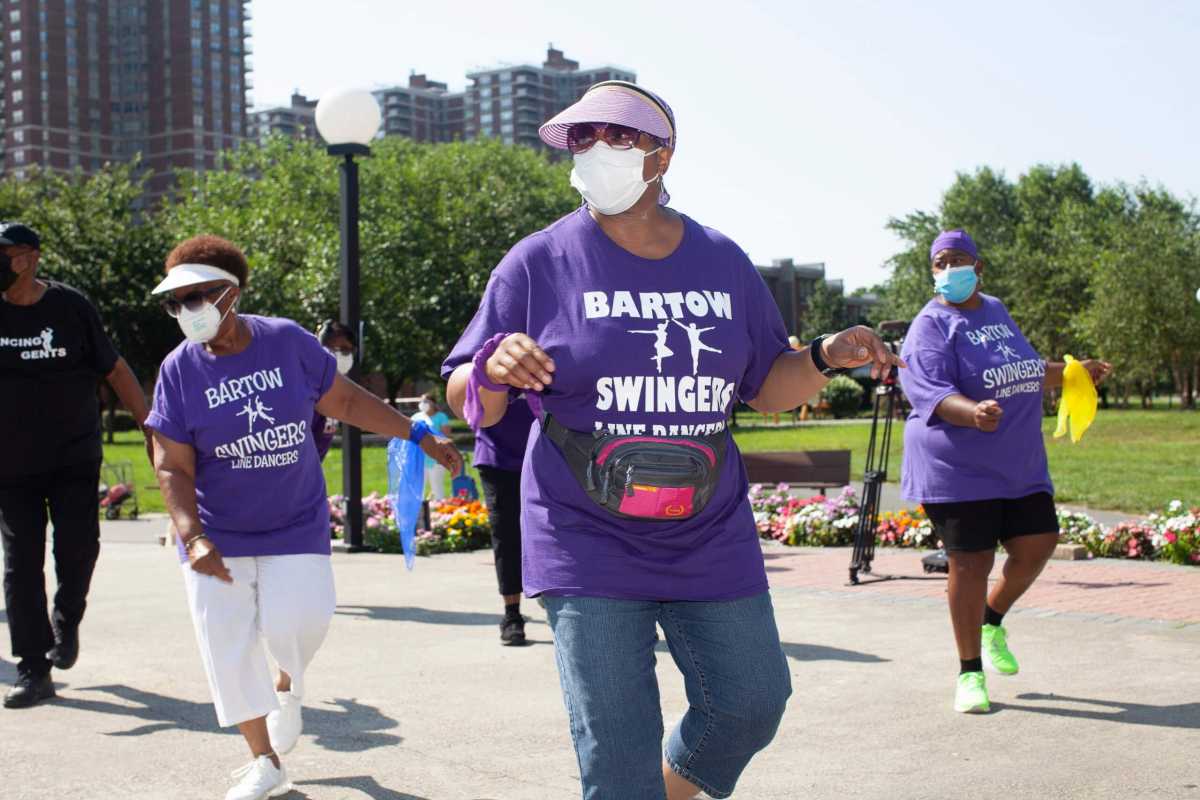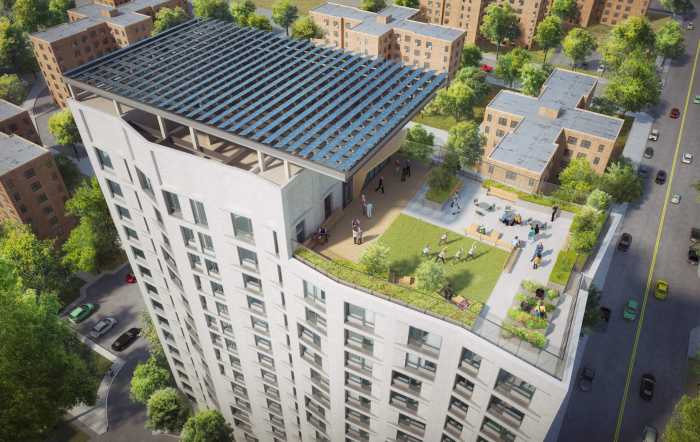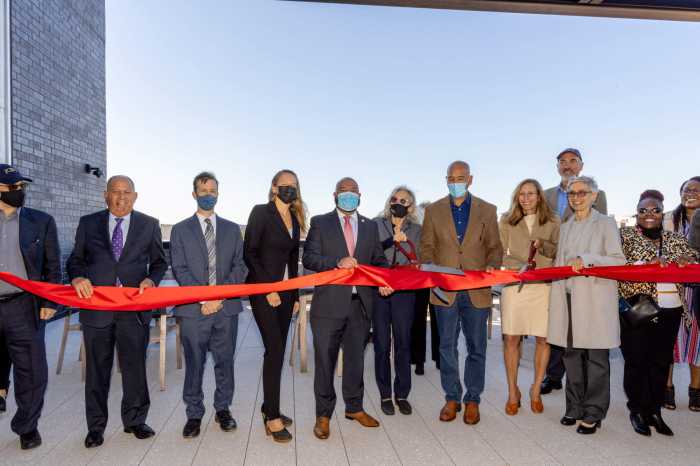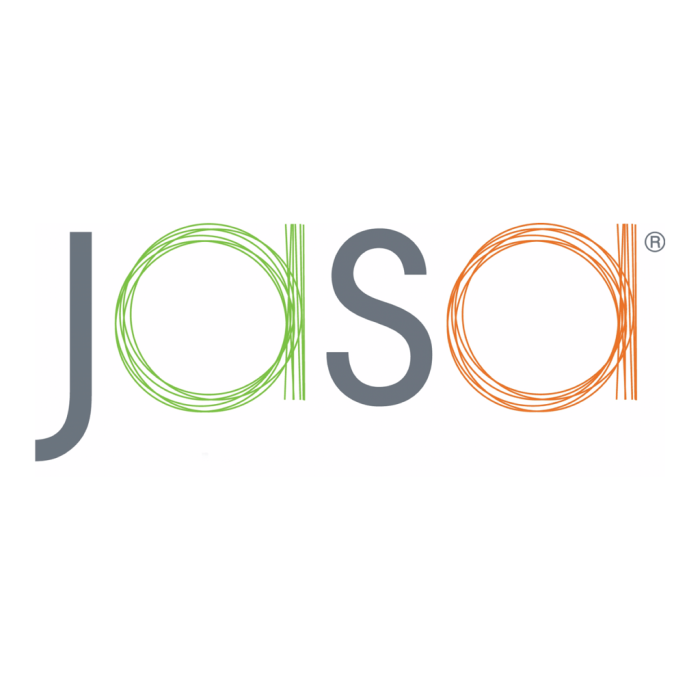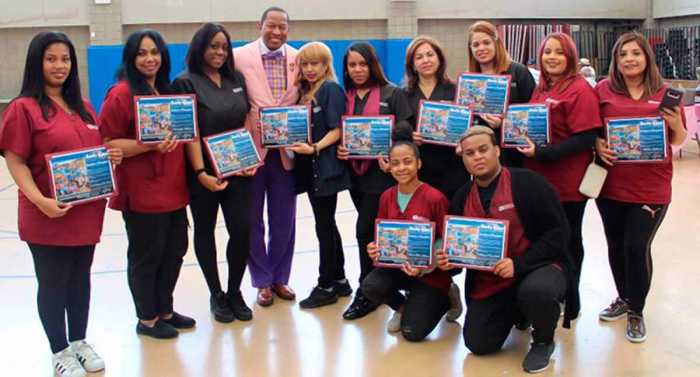As the COVID-19 pandemic put a two-year-plus pause on normalcy for New Yorkers across the state, an epidemic of loneliness caused by the closing of community centers has taken a toll on its aging population.
The reopenings for in-person activities of seven JASA centers in the Bronx — an agency that provides more than 40,000 older adults across New York with a “home away from home” providing group activities, meals, exercise classes, computer literacy training and more — coincided with the communal observances of Easter and Passover, at a time where seniors are craving community, tradition and normalcy more than ever.
A public health issue that was surfacing prior to the pandemic, loneliness and isolation among older adults was pushed to the brink as most individuals stayed home to stop the spread and keep safe.
This resulted in a significant loss of community connectedness. Individuals who are isolated and lonely have a 59% higher risk of physical and mental health decline, and a 64% higher risk of dementia. According to the city’s Department for the Aging, the effects of isolation is equivalent to smoking 15 cigarettes a day.
For Carmen Jusino, 74, the last two years without in-person activities at the Sue Ginsberg Center in the Allerton section has been hard, but she has been participating in JASA’s virtual events providing services and addressing social isolation. In addition to the community aspect that JASA centers provide, they also help seniors with the process of aging and their autonomy with life decisions.
“Outside of socializing, we also get real help from JASA. Sometimes you get letters from the city you don’t understand, so JASA’s social workers will sit down with you to read through it all and make sure you understand exactly what they’re saying,” said Jusino. “This helps out a lot because sometimes wording can be twisted or convoluted, and JASA will help us out with making sure we are taken care of.”
The prospect of restarting walking exercise classes on Thursday and Tuesday, and Monday painting classes, helps with seniors looking for a spark to break the monotony of life and enter back into social routines, Jusino said.

Countless research has found that social interaction helps aging populations relieve stress, provides protection against cognitive decline and dementia, and can even help prevent infections and cancer recurrence. But forgoing socialization in sake of health was a sacrifice for many seniors during the pandemic.
“In an effort to remain safe and slow the spread of the virus, many older New Yorkers gave up their connections to friends, family and community,” said Greg Olsen, director of the New York State Office for the Aging.
But reopening for Bronx JASA centers like the Sue Ginsburg Center was a multilayered approach that took longer than most sectors as administrators were cautious of reopening at the risk of the more virus-prone population.
“We were very cautious around reopening, and waited much longer than many of our counterparts until we felt the time was right,” said Victor Morell, who runs the Sue Ginsburg Center. “Just recently, we were able to host Easter and Passover celebrations for our clients, our (fourth) scheduled party since the onset of the pandemic, which was so touching. We are able to provide a safe place for them to safely meet up with each other, and create an environment that is a home away from home.”
Morell said the reopening been focused on ensuring seniors are comfortable heading back to the centers, a process that might take some time given the toll of the pandemic.
“Our biggest challenge is ensuring folks feel safe and comfortable enough to come back to our centers — we’re still working to get some of our members comfortable coming back,” he said. “There are quite a few that are comfortable being with each other in-person again, but some still have a lot of fear about being in-person, so we are doing our best to educate them on best safety measures.”
Reach Robbie Sequeira at rsequeira@schnepsmedia.com or (718) 260-4599. For more coverage, follow us on Twitter, Facebook and Instagram @bronxtimes

